Humans have used the cannabis plant as a sleep aid for many centuries. But why does weed make you sleepy? Certain cannabinoids have relaxing and soothing effects and can even make falling asleep easier. A recent study report that cannabis shortens the time it takes to fall asleep, both for sleep problems and for people who fall asleep without trouble.
For people with specific conditions such as chronic pain, post-traumatic stress disorder, and multiple sclerosis, smoking weed before bed may help them fall asleep faster, wake up less during the night, and enjoy better sleep quality.
Many young adults use cannabis consumption to self-treat insomnia, anxiety, and pain. Among these users, the effectiveness of smoking marijuana for sleep is more uncertain. However, a study on individuals with insomnia found that many participants reported relief from their symptoms when using cannabis.
Some studies suggest a distinction between those who use cannabis daily and less frequent users in how marijuana affects their sleep patterns. Still, more research is needed for a solid conclusion.
What is a Cannabinoid?
Cannabinoids are found in the cannabis plant as well as produced naturally by the human body. We have an endocannabinoid system (ECS) that internally produces cannabinoids. These compounds are quite important to maintaining internal balance through many different body systems. Cannabinoids interact with our ECS to help maintain functional balance through a system of messenger molecules and receptors. Sleep, energy, cardiovascular function, reproduction, stress, chronic pain, motivation, appetite, digestion, and more are some of the body functions that cannabinoids impact.
THC vs CBD
The two most common types of cannabinoids are tetrahydrocannabinol (THC) and cannabidiol (CBD). It is naturally occurring in cannabis, but some have created a synthetic cannabinoid product as well. Some cannabinoids are more likely to cause psychoactive effects than others. THC is the cannabinoid most likely to cause euphoria, relaxation, and increased appetite. CBD is the cannabinoid least likely to cause these effects and is often the choice for people looking for pain relief without the high. When it comes to marijuana use, different strains will have certain levels of these cannabinoids, thus affecting the sedating effects.
How do cannabinoids affect sleep?
Many researchers agree that the sleep-enhancing effects of cannabinoids are due to their interactions and how they bind with cannabinoid receptors in the human brain. When cannabinoids bind to these receptors, they shoot off messages to increase adenosine levels and suppress the brain’s arousal system. These two effects combined may help cannabis users with feeling tired, so there is less time counting sheep and more time dreaming.
Terpenes
Cannabinoids have recently drawn attention for their potential health benefits related to sleep, mood, pain, and other health issues. Terps can also play a significant role in the psychoactive effects of cannabis, including its ability to affect sleep. Scientists are still learning about how terpenes affect the body and mind.
Terpenes are small molecules in cannabis buds that create their smell and taste. Terpenes are found in many natural plants, fruits, and flowers other than cannabis. Over a hundred unique terpenes have been identified, and various combinations of terps in different strains of cannabis create distinctive flavors and aromas. Scientific research shows that terpenes can also affect energy, mood, sleepiness, and alertness.
Some of the most common terpenes for sleep aid are:
- Myrcene. This terpene is commonly occurring in cannabis; this terpene is also found in many fruits and herbs, including mangoes, basil, thyme, lemongrass, and the sleep-promoting plant’s hops and ylang-ylang. Myrcene has been shown to have anti-inflammatory and soothing effects.
- Caryophyllene. This anxiety and chronic pain-relieving terpene may promote sleep due to its relaxing, analgesic properties. It has a spicy aroma found in cloves and black pepper.
- Limonene. According to research, this citrus-flavored terpene, found in citrus peels and cannabis, and other plants, has been shown to reduce anxiety and stress. Limonene may contain anti-depressant effects and could reduce OCD symptoms. Scientists think limonene’s calming, mood-lifting results come from its ability to elevate serotonin levels in the brain. That may also make this terpene a sleep promoter.
- Terpineol. This terpene has relaxing, sedative effects and can also be found in lilac, pine, and eucalyptus.
- Linalool. This lavender-scented terp can be found in many plants, including cannabis. Studies show linalool can reduce anxiety and depression symptoms and help guard the immune system against stress damage. Linalool increases adenosine, a sedating hormone that helps us fall asleep.
Consumption Methods
The market is vast among cannabis products, from medical-grade buds and tinctures to recreational vape pens and dabbing. Smoked weed comes in many other forms and can also be vaped, eaten, applied orally, and even used topically. Baked goods, candies, cannabis-infused oils, beverages, savory snacks, candies, and gummies, there are many different choices for cannabinoids. These tiny chemical compounds called THC and CBD have many more benefits than most people know. Purchasing marijuana from a reputable dispensary is always essential along with so many other decisions.
American Sleep Association
According to the American Sleep Association, up to seventy million American adults experience sleep disorder symptoms. The same study shows that forty million U.S. adults experience insomnia every year, and approximately ten to fifteen percent will deal with chronic insomnia at some point in their lives.
Sleep Needs By Age Group
Adult: 7 – 9 hours
Teenager: 8 – 10 hours
Child 6 – 12 years: 9- 12 hours
Child 3 – 5 years: 10 – 13 hours
Child 1 – 2 years: 11 – 14 hours
Infants 4 -12 months: 12 – 16 hours
How to Prepare for Bedtime
A few ways to promote melatonin production and get better sleep include:
- Allow natural light into the room during the day
- Close blinds and shut out any light before bed
- De-clutter the room
- Take a warm bath or shower
- Apply essential oil pillow mist
- Turn on a diffuser with lavender
- Light stretching
- Meditation
- Limit screen time and blue lights
- Dim lights around the house
- Turn the a/c to cooler temps
- Use an air-humidifier or fan for noise
- Turn on beach or rain sounds for sleep aid
- Early morning behavior should include self-care and little screen time
Five Best Strains for Sleep
Afghani
Afghani is a potent Indica strain known for its relaxing effects. This spicy weed is an effective sleep aid for insomnia and severe sleep disorders.
Hindu Kush
One of the best pure Indica strains, Hindu Kush is bursting with trichomes and flavor. It will certainly make you sleepy and hungry making it the best strain for a movie and a snack before bed.
Grape Ape
Grape Ape is a delicious, grape-smelling Indica that is sure to provide euphoric feelings followed by a peaceful, natural sleep cycle.
Blue Dream
Blue Dream is a Sativa-dominant hybrid that packs a punch. Its high levels of THC will send you into a full-body relaxation that can easily shift into a comforting deep sleep phase.
Grandaddy Purp
Grandaddy Purp or GDP is a California native and a famous Indica breed. Cannabis use with this weed can provide deep sleep that will leave you feeling refreshed in the morning.
Three Strains to Avoid before Bed
Green Crack
A potent Sativa cannabis strain, green crack is a natural energy booster with both CBD and THC, however with a significant amount more THC content.
Durban Poison
If you smoke weed, you have heard of this famous cannabis strain from South Africa. With higher concentrations of THC, it is known to increase energy levels. Durban Poison is an intense Sativa that will spark creativity and focus.
Super Lemon Haze
SLH is a Sativa-dominant Hybrid and a Cannabis Cup winner from Green House Seeds. It won’t make you sleepy, but it will provide energy for muscle restoration activities such as stretching and yoga.
Potential Risks- Smoking Cannabis to Induce Sleep
REM sleep disturbance
According to a study from 2008, ingesting marijuana strains with high THC levels can reduce the amount of REM sleep you get. Reducing REM sleep means reducing dreams, and for those who experience posttraumatic stress disorder, high THC strains can also help treatment-resistant nightmares.
Weed Hangover
Can the sleepy effects of smoking weed carry over to the next day, similar to an alcohol hangover? Higher doses, especially of Sativa strains could produce a groggy feeling in the morning. However, rather than a hangover, it feels more like the day after taking Nyquil or a sleeping pill. If you have an active lifestyle and don’t want to feel sleepy during the day, try smaller doses before bed and possibly choose a hybrid strain for balance so you can feel the positive effects without the rest.
Does Holding In Weed Smoke Contribute to Feeling Tired?
Some people believe that holding in weed smoke effects can lead to feeling more high, but it may actually contribute to feeling tired. When smoke is held in the lungs, it can reduce oxygen intake and potentially cause fatigue. It’s important to be mindful of how smoking marijuana may affect your energy levels.
Getting Your Medical Card
There are a few things you need to know if you are applying for a medical cannabis card :
An MMJ card is a document a medical patient is issued after going through an evaluation and application process that allows them to consume, purchase, possess, and grow marijuana for use in managing their medical condition.
Only certain medical conditions will qualify for a marijuana card. The list of conditions varies from place to place, so you will need to check with your state guidelines to determine if you are suffering from an eligible condition to be granted a medical card.
There are a variety of marijuana telemedicine providers that can connect patients with licensed medical marijuana doctors in their state. From there, in some cases, the entire consultation and application process can be done online. Keep in mind that this is dependent upon the state one lives in, the MMJ process in that state, and what marijuana telehealth providers are available to service that state.
Applying for a medical marijuana card online may still require a physical visit to a doctor. Depending on your state and the telehealth providers available you may be able to have your doctor fill out a certification form and then fill out an online application for a medical marijuana card.
The Takeaway
So, does weed make you tired? Yes and no. Certain cannabis strains are better at promoting a healthy sleep cycle, while others may provide an energy boost. We recommend chatting with a local budtender about the best cannabis strains for sleep quality. Once you find the right cannabis strain, you’ll be well on your way to a refreshing deep sleep.

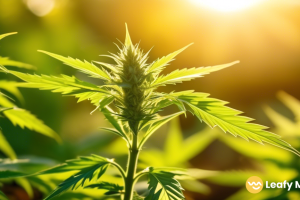
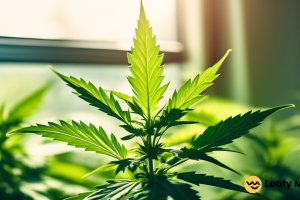
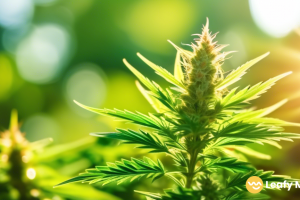




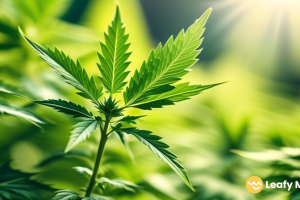
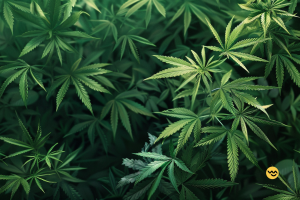
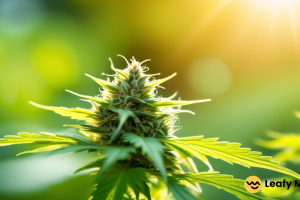
Leave a Reply